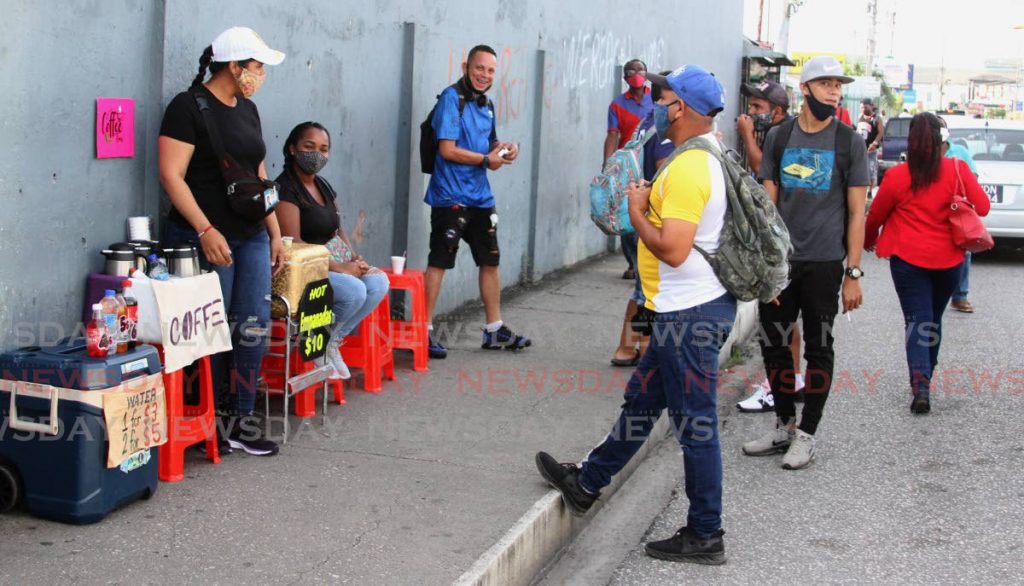Govt must make decision on Venezuelans

Experts say TT needs to collect data and the Government must make some policy decisions on Venezuelan migrants or lose the opportunity to make the recent influx a positive one for the economy.
They said it was essential to determine the needs of the tradeable sector and sectors earmarked for development, identify migrants and their skills, and match them to the needs of the country.
Mariano Browne, former minister in the Ministry of Finance, said TT has had an aging population over time, the fertility rate is not high enough to maintain the population, and labour productivity has been on the decline for years.
He said in addition to unskilled workers, Venezuelan doctors, lawyers, teachers, dentists, nurses, tradespeople, and other professionals had been coming to TT for a while. “The reality is TT has needed a structured immigration programme for some time but from a policy perspective, we have not been prepared to take it on. And here we are, in the middle of a crisis, and everybody’s talking about immigration as though it started somewhere around 2017 or 2018.”
He said TT was not prepared and still had not addressed the situation on a practical level with the most immediate concerns being health care, compulsory education, social services, housing, crime, policing, social cohesion, and labour and the economy.
“If we don’t harmonise, if we don’t find a way to integrate them, if we don’t find a way to teach their children, we will lose out on a significant opportunity.”
He made the comment during his contribution to the UWI Trade and Economic Management Unit’s virtual national conversation on the Venezuelan migrant impact on the TT labour market on Friday night.
Also speaking on the forum was Dr Anthony Gonzales, former director of the Institute of International Relations at UWI. He said in general, export tends to increase when migrants are highly qualified, and if they were properly integrated into the economy and labour market of a country.
“We need to focus on the long-term and realise our demographics are not in favour of export development. If we look at the age profile of the country we will see we are an aging population and we need a younger population with more skills to be able to perform in the future.”
In that case, TT would have to import labour, and migrants could contribute.
He said they could fill the employment gap in certain low-skill areas of the goods and services sectors. There were already many in agriculture, construction and retail, and a few in manufacturing.
The private sector could try to develop professional credentials to re-certify Venezuelans and employers should be allowed to go out and search for labour, and fast track work permits for their new employees.
He suggested Government instigate skills development for migrants. Although many were temporary refugees and may leave if the situation changed in Venezuela, but if they were “offered roots” in TT, they may decide to stay.
Economist Dr Roger Hosein said because of the language barrier, Venezuelan migrants end up in the category of unskilled workers, resulting in an increase in the non-tradable (services) capacity production aspect of the economy. That could be dangerous if capital followed the immigrant sector into the non-tradable sector because non-tradable goods do not generate foreign exchange.
He said a labour market boom of unskilled workers would mean wages of unskilled workers would decrease while wages of skilled workers would increase.
Imports would also increase with more people buying products, but there could be a complementary relationship between trade and immigration. He said foreigners may want products from their home country and they have the knowledge of where and how exactly to get the goods from Venezuela, as well as what Venezuela may want from TT. This may reduce transaction costs.
Hosein admitted the influx came at a cost to TT because they had to be provided basic health care, and the increased number of people using roads, water, electricity and other resources.
“It’s an unfortunate situation. It is happening. And we, therefore, need to find a way to maximise the gains and to minimise the losses.”

Comments
"Govt must make decision on Venezuelans"